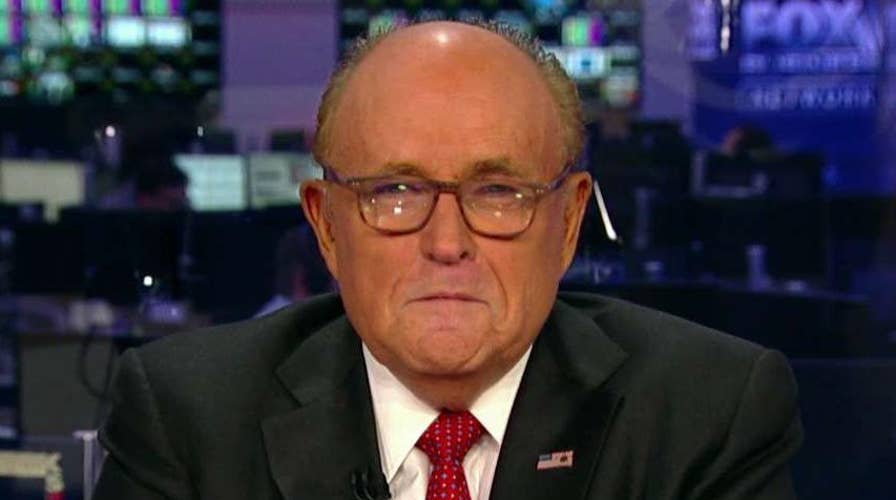Giuliani: Hillary's remarks on Trump and Russia are hypocritical
President Trump's lawyer Rudy Giuliani reacts to Hillary Clinton's comments on Trump, Russia, and the Mueller report on 'The Ingraham Angle.'
Rudy Giuliani, a personal attorney for President Trump, called Thursday for conservative writer Bill Kristol to apologize for accusing him of lacking the courage to face the “stronger person” Hillary Clinton in New York's 2000 U.S. Senate race.
Giuliani said Kristol's critique on Twitter completely omitted the fact that Giuliani was diagnosed with prostate cancer at the time.
Kristol, a frequent Trump critic, called out the former New York City mayor on Sunday, saying Giuliani played “a tough guy” on Twitter but lacked the nerve to take on Clinton in his home state.
“When the race got tough, @RudyGiuliani got going. As bullies do when confronted by a stronger person,” Kristol tweeted.
Giuliani told “America This Week” that his father died of prostate cancer.
As for himself, Giuliani said he was forced to undergo two different treatments that wore him out. He said he had to take a daily nap for two hours and “would get sick to my stomach at the most inappropriate times.” He said he was able to continue his job as mayor only because of his dedicated staff.
"If that man doesn’t apologize, there’s nothing left of decency with him," Giuliani said about Kristol.
It took little time for social media to jump on Kristol’s comment and point out Giuliani’s cancer diagnosis.
“Well...he was diagnosed with prostate cancer during the race. So this is not your best work,” tweeted Nathan Wurtzel.
CLICK HERE TO GET THE FOX NEWS APP
“You do recall that he was diagnosed with prostate cancer that same year?” seconded radio personality Frank Morano.
"So this is not your best work."
Giuliani announced in 2000 during a news conference that the reason he was suspending his Senate campaign, as he was facing serious competition from Clinton, was because of health reasons, particularly the prostate cancer diagnosis, which he went on to beat years later.
“I used to think the core of me was in politics, probably,” he said. “It isn't. When you feel your mortality and your humanity you realize that, that the core of you is first of all being able to take care of your health.”
Fox News' Lukas Mikelionis contributed to this report.













































